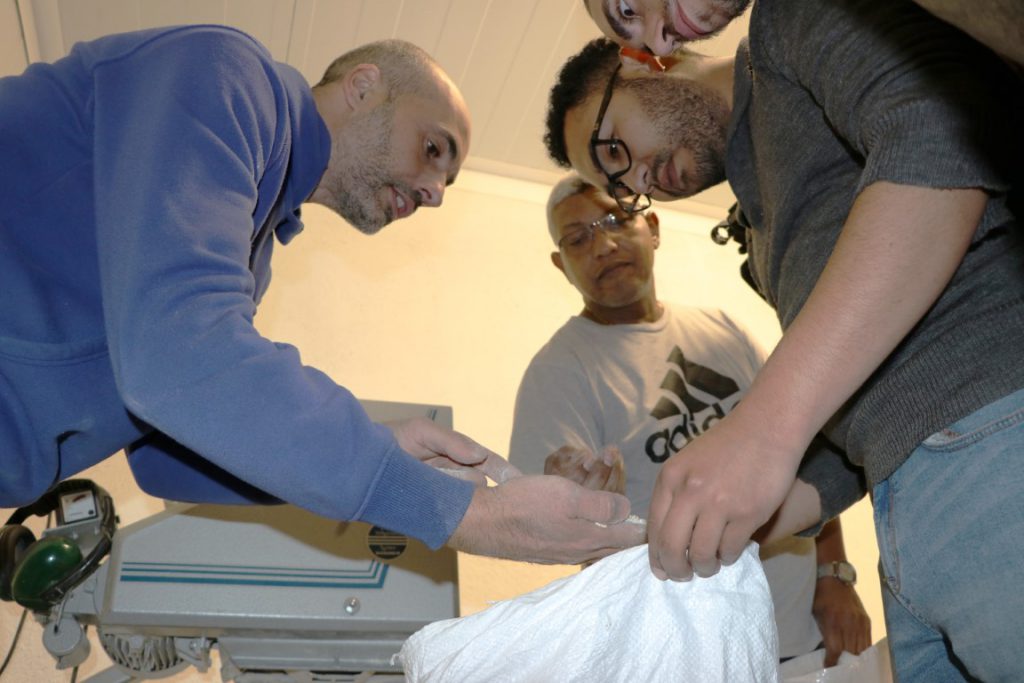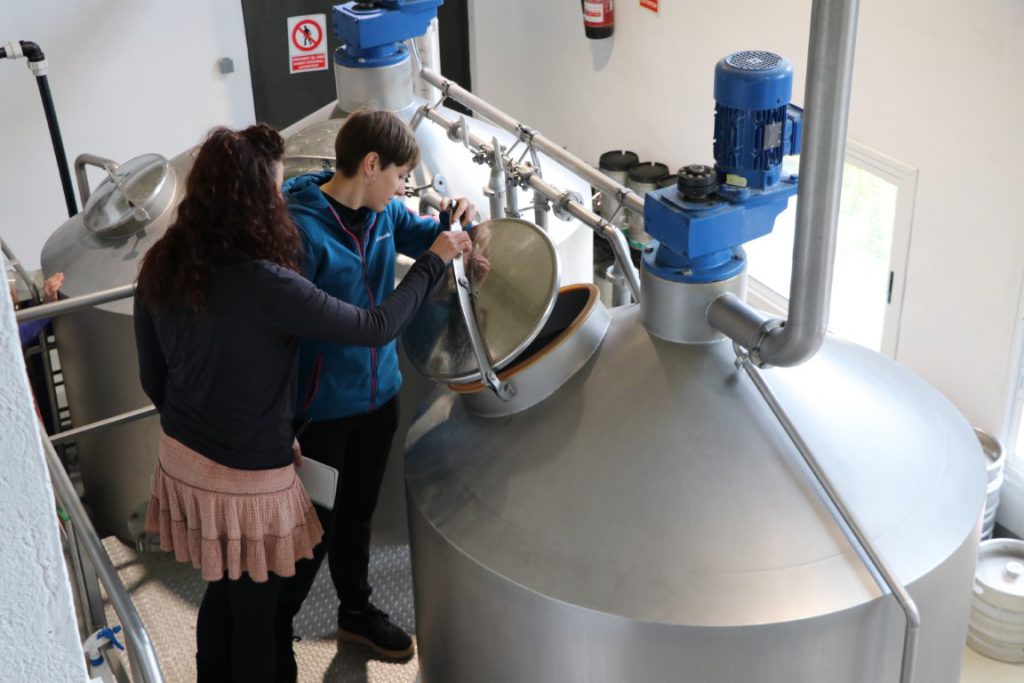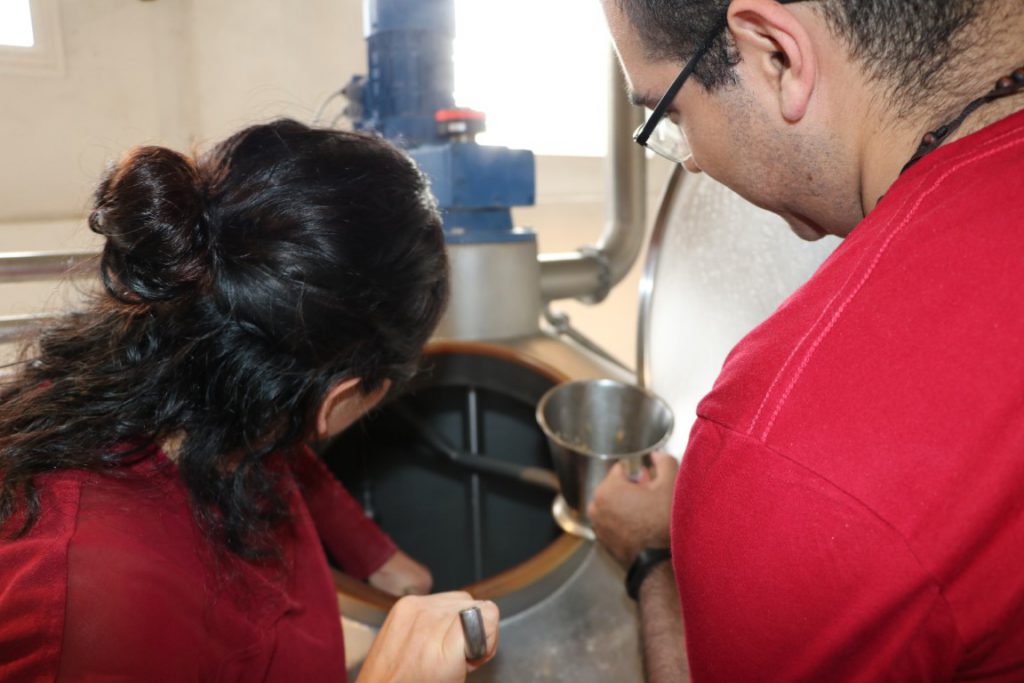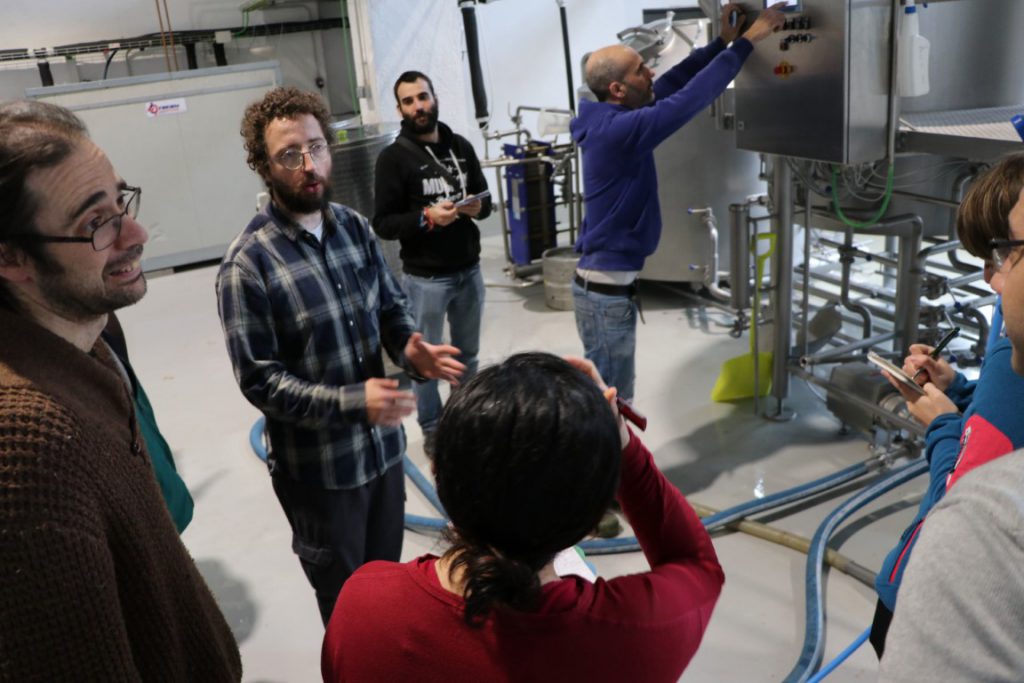06/05/2019
The students of the Master’s Degree in Fermented Beverages make their first beer with the collaboration of a craft brewery
Producers hope that the first graduates of the master's degree will innovate and increase the quality of their beers
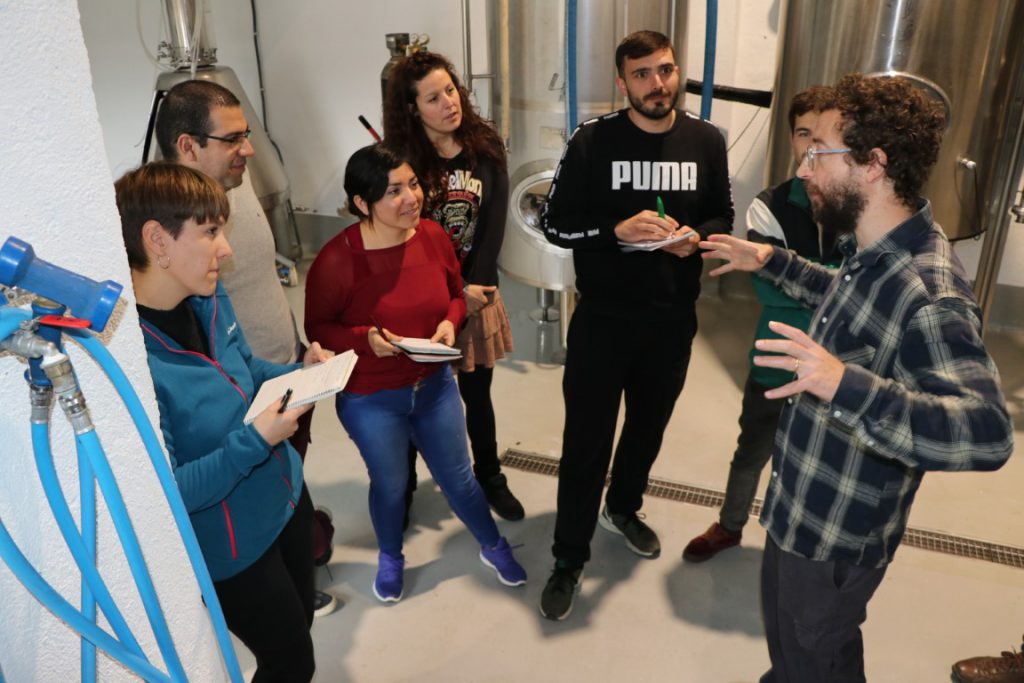
Producers hope that the first graduates of the master's degree will innovate and increase the quality of their beers
To innovate and to improve the quality of beer. These are the expectations the brewing sector has for the new generation of beer producers graduating from the Master’s degree in Fermented Beverages of the URV, which started in 2015. The key is training, but also the accumulated experience of these craft beer producers, which they now make available to students. That is why students have moved out of the classrooms and laboratories to Els Clandestines of Montferri brewery (Tarragona) to prepare the first brewing collaboration between the URV and this brewery, under the instruction of Professors Roger Plata, Jordi de Mier and brewer Miquel Àngel del Castillo.
In keeping with the beers produced in recent years in Catalonia and elsewhere, the idea of this practice is to find a unique style. That is why in addition to the malting process, the use of hops, and the decisions about the fermentation process, a further decisive factor in the taste and character of the beer is the must made in the Celler Experimental Mas dels Frares, from the Faculty of Oenology.
The recipe is prepared by the students and teaching staff. In addition to grape must, it includes malt from the Vallès Oriental region of the Quana brewery, malted in Germany, and a mixture of foreign and Catalan hops, which incorporates a new variety of hops developed by BioLupus called Lolita. Once the water had the right balance and the malt and the hops had been prepared, students went to work at the brewery on 3 April.
The first task was to mill the cereals. This is where the students had to calculate the adequate temperature and pH for the enzymes in the malt to transform the starch into sugar blocks during maceration. When finished, the malt is filtered to separate the solid from the liquid, which returns to the tank and is boiled to pasteurise it, and then the hops are added. A total of 600 litres were made, to which the muscatel must was added at the beginning of the fermentation to mark the character of this new beer. After cooking, it was left to rest and cool and then ferment for about 10 days. Until, finally, it was bottled the last week of April.
This experience should help students who will graduate in Science and Technology of Beer to “see what their professional future can be like, and, at the same time, to understand that beer production is a very complex process, in which all the details are important to the final outcome,” explains Roger Plata, lecturer in the subject of Brewing Science and Technology. This is also the opinion of Araceli Flores, a master’s student who sees in this practice in Montferri an opportunity to make craft beer on a large scale, and “to be closely involved in the whole process.” Flores is a food engineer and came from Mexico to study this degree.
Carlos Rubio, a biotechnologist, is also a master’s degree student. In his case, like many of the craft brewers who started years ago, he started making beer at home. The interest in production led him to seek a master’s degree to hone his skills and chose the one from the URV. Soon he will do his internship at a brewery where he would like to work. However, his objective is to become a “nomadic brewer.”
In fact, the whole training process will have an impact on the sector, according to Miguel Àngel del Castillo: “When we started, there was no formal education. Now, the students come out of the master’s with techniques and knowledge that will make the sector grow in quality and innovation.”
